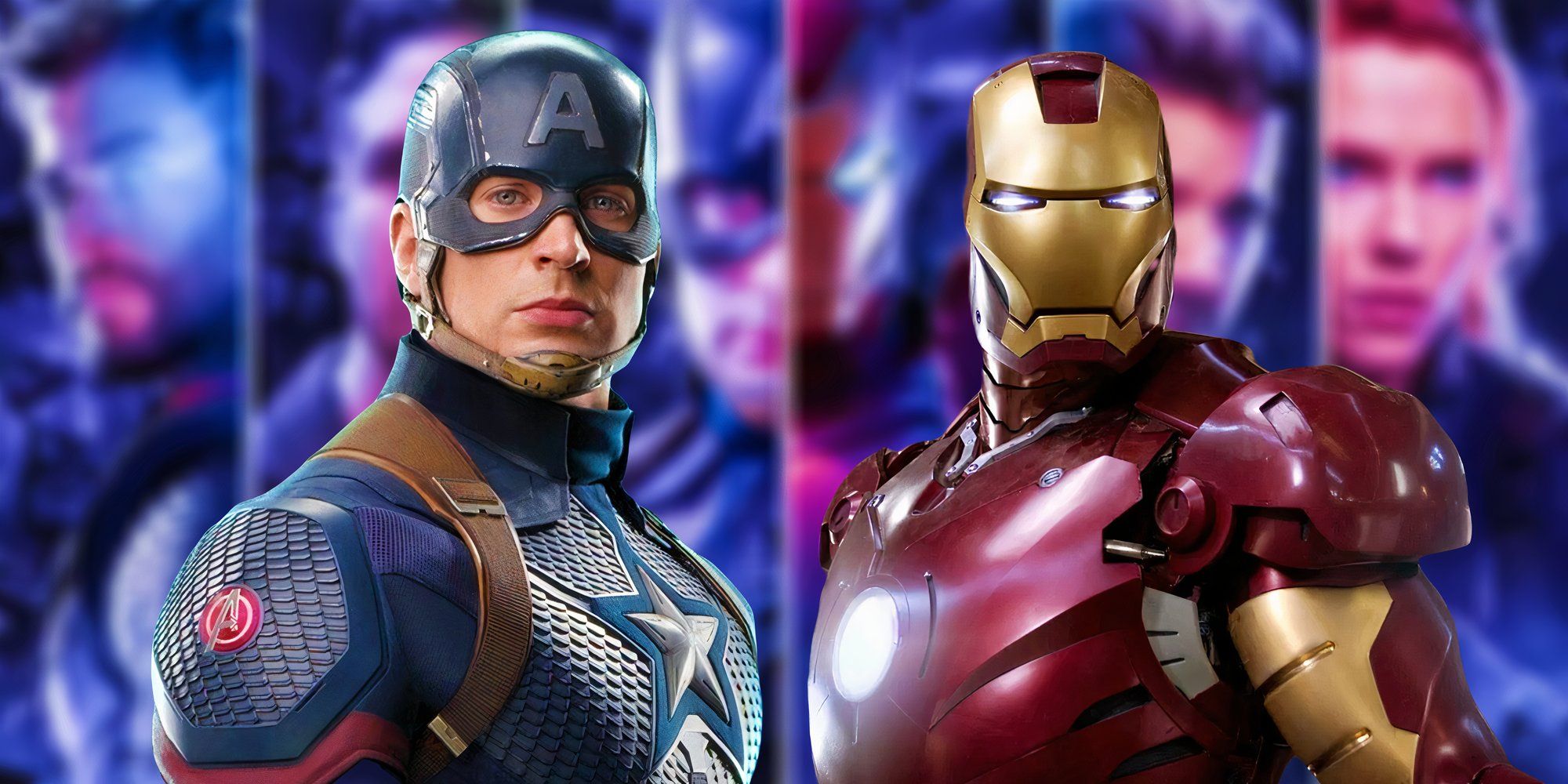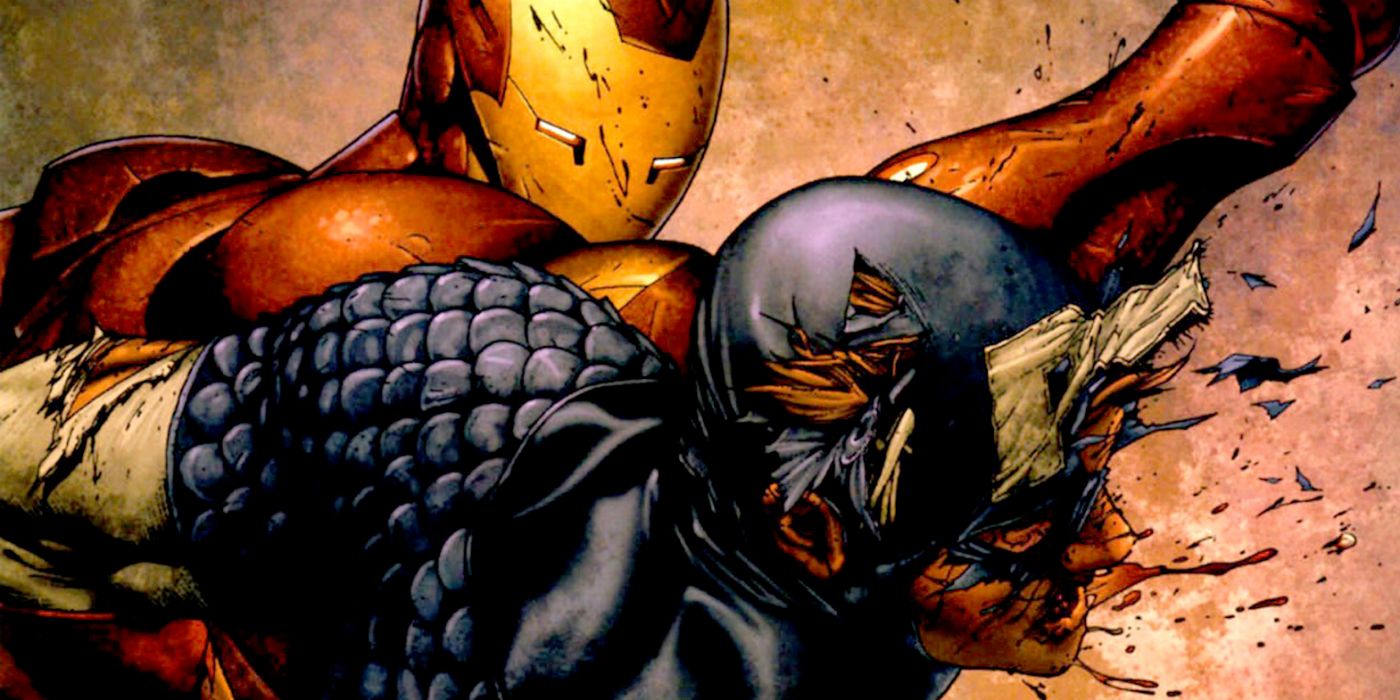
According to Marvel Senior Editor Tom Brevoort, Iron Man and Captain America were originally introduced as leaders of opposing sides in Marvel Civil War storyline, which is widely considered the defining superhero crossover story of the last twenty years. However, the conflict almost looked and felt entirely different; Initially, author Mark Millar switched Tony Stark and Steve Rodgers' positions on the Superhero Registration Act.
In your latest Substack Q&ABrevoort admitted that he was the one who intervened and corrected the course Civil War at the initial stage of conception, arguing that Millar's positioning of Captain America as pro-registration and Iron Man as anti-registration was, in fact, retrograde.
The former Marvel editor's observation was astute, and in the end, Brevoort takes much of the responsibility for the event's success. For Marvel fans, it's worth imagining how different the last two decades of comics would be if the publisher continued with Millar's original proposal.
Marvel’s “Civil War” Was Almost Radically Different, on the Story’s Most Fundamental Level
According to senior editor Tom Brevoort
One of the things that made Marvel Civil War Its success was the way it distilled the series' central conflict into the leaders of its two factions – Iron Man, who argued in favor of the Superhuman Registration Act, and Captain America, who rallied those who considered it dangerous. More than just superheroes fighting, the story became about a bitter ideological divide between two friends and allies, in which the action transcended "right and wrong" or "good and bad."
Brevoort's response shows a concise and well-calibrated understanding of Iron Man and Captain America.
As Tom Brevoort, who played a key role in creating the series, explained, This has always been the genesis of the plot, but with a critical difference – which character best represented which argument. Brevoort wrote:
The central concept was by Mark Millar, and it was he who presented the conflict as being between Captain America and Iron Man. But Mark set them up as you described above, and I was the one who stepped in and said that was wrong. Captain America has almost never been presented as a “my country is right or my country is wrong” figure. In fact, he is more sympathetic to FDR’s “New Deal” agenda. So for him to choose to participate in the hunt for other heroes felt like a misrepresentation of character. Iron Man, on the other hand, was a futurist and also someone who had a long history of working with the government on building weaponry, so it made more sense to me that Tony Stark would see the Registry as a necessary step and throw his weight behind it. behind it. From there, Mark generally figured out who would be on which side based on his needs for the story, with input from me and several other editors and writers.
Brevoort's response shows a concise and well-calibrated understanding of Iron Man and Captain America; This is not to say that Mark Millar did not have such an understanding, but simply that, at this crucial moment, the author did not recognize how he was developing his idea around the characters' superficial conceptions rather than their deeper attributes.
Why Tom Brevoort made the right decision and possibly “saved” Marvel's Civil War
Exploring the legacy of the miniseries
Comic book fans, especially Marvel readers, love a good “What If?”, and the question of how Civil War would have happened – and more importantly, what his legacy would be as he approaches his 20th anniversary – is huge. Mark Millar would have produced an exciting and thought-provoking story with his original conception of Civil WarOf that fans can be sure; however, how this would have impacted fans' predominant opinions on Iron Man and Captain America is harder to consider counterfactually, especially with the even more controversial Captain America. Secret Empire the plot emerged a decade later.
Still, it's not entirely wrong to suggest that Tom Brevoort “saved” Civil War interceding at just the right moment in the early, generative stages of its creation – though perhaps it's better to say that Brevoort helped the story be the best possible version of itself, rather than suggesting that it would have failed if Tony Stark and Steve Rogers' roles were reversed. In any case, Marvel's senior editor's comments on his role in the story are a fascinating and insightful look at the story of Iron Man and Captain America defining story of the 21st century.
Source: Tom Brevoort, Substack

